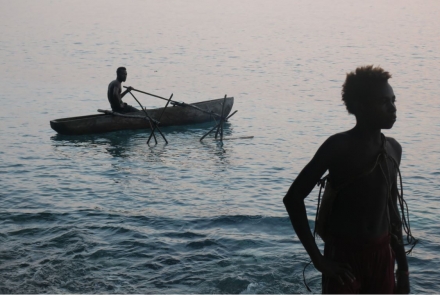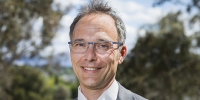
Image by Ben Bohane
Pacific Wayfinder: Climate change and the IPCC report through a Pacific lens
The latest Intergovernmental Panel on Climate Change report provides sobering insights into the pace of global temperature and sea-level rises, and a growing number of Pacific climate scientists are urging policymakers to take action, Ben Bohane writes for the Pacific Wayfinder series.
It is rare for the release of scientific papers to generate global media attention, but the release of each Intergovernmental Panel on Climate Change (IPCC) report now guarantees headlines and commentary about time running out for humanity and current “earth systems” on our planet.
“Code Red for humanity” is the way United Nations (UN) Secretary General Antonio Guterres described the latest report by the IPCC, which includes 4,000 pages of data generated by thousands of scientists around the world.
According to the report, the world has already warmed 1.1 degrees since 1900 and is on track for 1.5 degrees sooner than expected – perhaps as early as the 2030s. Our ability to remain ‘in the control room’ of Earth’s weather systems is diminishing.
Recently, Professor Mark Howden, Director of The Australian National University Institute for Climate, Energy and Disaster Solutions, and Dr Morgan Wairiu, a contributor to the IPCC report, sat down on the Pacific Wayfinder podcast to discuss its implications for the Pacific Island region.
For Professor Howden, there were three key points emerging from the latest report. First, the global ‘carbon budget’ – the amount we can emit before a 1.5 degree temperature rise becomes inevitable – will be used up much sooner than previously predicted because national commitments on carbon emissions are not being kept. Second, the current trajectory has the world on track for a two to three degree rise. Third, it is clear that that human activity is accelerating this process.
“One of the key elements [of the report] was that the human influence on global climate is unequivocal. It’s a matter of fact rather than a matter of probability,” said Professor Howden. This leads to “climate extremes” which impact the Pacific, and he is worried about sea level rise given the latest projections arising from ice sheet breakdown.
“This could generate really scary high-end sea level rise,” he warned.
For Dr Wairiu, who grew up in Solomon Islands and is one of the few Pacific Island scientists contributing to the IPCC reports, the science is worrying for the region.
“For Pacific Islanders, the most important thing is keeping the global temperature increase at 1.5 degrees. But what is becoming very clear from this report is that we might exceed that in the next 10-12 years, as Mark has alluded to. Once we exceed that…then definitely there’ll be a collapse or impact on small island countries, ecosystems, economy and also livelihood,” he said.
“So the biggest risk right now is the risk to habitability of small islands as well as the disappearance of those small islands.”
Both Professor Howden and Dr Wairiu stressed the need for global co-operation to reduce carbon emissions.
For Dr Wairiu, it has been a long journey since growing up on Malaita island in the Solomons, fascinated by the natural world. He first heard about climate change in the 1980s and became interested in the role of carbon.
After doing his science degrees in places as diverse as the University of the South Pacific in Fiji, to Aberdeen in Scotland, to Utah in America, he feels he has now come full circle to be “back in the village”. He also wants to encourage other Pacific Islanders to take up a career in science to build up the local pool of expertise.
“It’s not easy because, you know, conducting research in the Pacific is quite challenging. And with resources lacking, there aren’t many people taking up a career in this space. But it’s just so important for us that the people who are interested in this particular field are engaged so that we can contribute to the knowledge on the impacts of climate change to the Pacific Island countries,” he said.
Through initiatives such as Pacific Centre for Environment and Sustainable Development (PACE-SD), Dr Wairiu has already helped to build a growing cadre of Pacific climate scientists.
“For the last 10 years, we’ve graduated well over 300 Masters students from the Pacific. The centre is continuing to build the capacity and push out some of those graduates working within the government, within some of the regional organisations and some of the [non-government organisations], so it’s part of that whole capacity building within the region.”
While the latest IPCC report has focused on the ‘raw science’, another report is expected in February next year, which will offer more in the way of policy options for governments and communities grappling with how to adapt to rising temperatures and seas. With time of the essence, policymakers around the world must listen to Pacific Island voices as they look for these solutions.
*This article is from our Pacific Wayfinder series, bringing you voices from the Pacific Island region. It is produced in conjunction with the **Pacific Wayfinder podcast, produced by the Australia Pacific Security College.*
Updated: 24 November 2024/Responsible Officer: Crawford Engagement/Page Contact: CAP Web Team












